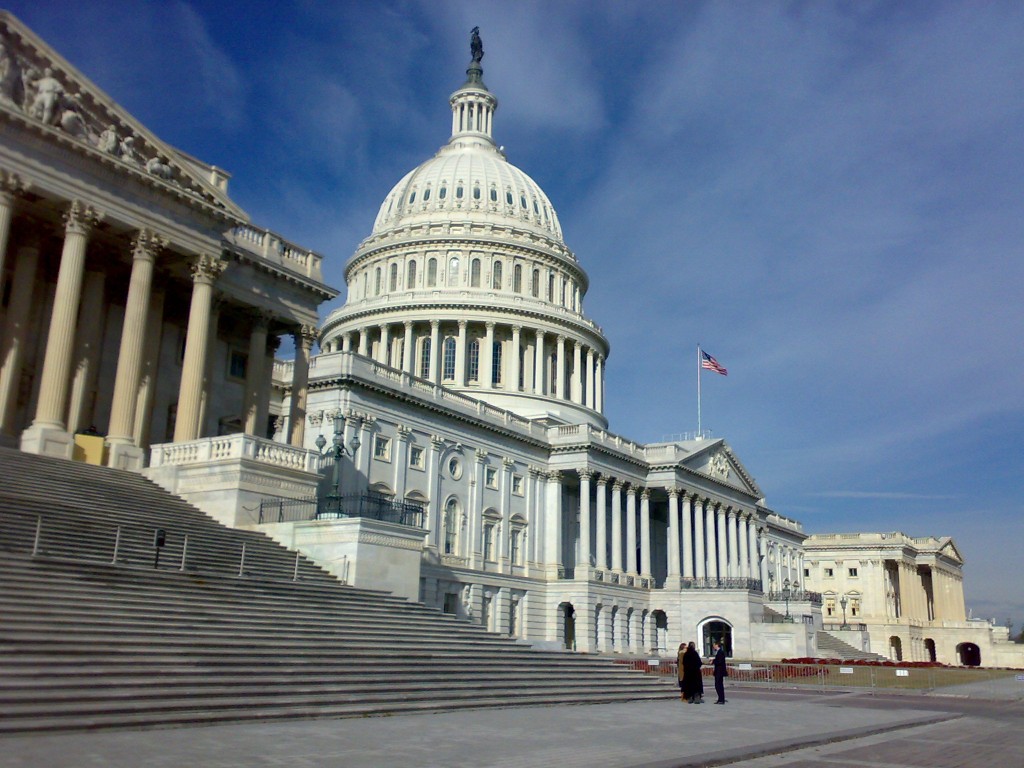
Combustible Rhetoric About the Russell Amendment Ignores Serious Religious Freedom Issues
Stanley Carlson-Thies, May 26, 2016
The Washington Post’s headline on the May 19th House of Representative’s vote on the Russell religious freedom amendment says “House floor turns into battleground over LGBT rights,” but that is too mild a description. The floor debate and much of the commentary before and after the vote has been incendiary and fact free. This is no way to make good public policy for complicated issues.
President Obama’s 2014 Executive Order adding job protections for LGBT people in federal contracting maintained the exemption that allows religious organizations to contract while hiring staff consistent with their religious identity. Federal Executive action since then though has seemed to put that vital hiring right in doubt, so language—the “Russell amendment”—was put into the National Defense Authorization Act (NDAA) for clarification. With the clarification, religious organizations providing chaplain services, health research, refugee resettlement, and other important services do not have to withdraw for fear of lawsuits. Alas, the heated opposition to the amendment, including the bitter floor fight before the House of Representatives decided to keep the clarification, has substituted caricatures and symbolic statements for a focus on the details and goals of the amendment.
The organizations seeking clarification include religious universities, whose professors and students perform valuable research under federal contracts, faith-based organizations that serve federal policy by providing essential resettlement services for refugees, and organizations that recruit and place chaplains and other spiritual support workers so that military service members and their families are able to exercise their religion despite being located overseas or on a military base. Essential to each is the freedom to ensure that their employees reflect in belief and action the religious identity of the organization, just as Democratic politicians seek liberals and not Tea Partiers for their staff and environmental groups would reject as incompatible an applicant who habitually trashes his surroundings. It is legal for the religious organizations to maintain an employee conduct standard, including a requirement of chastity outside of marriage as the religious tradition defines marriage.
The goal of the Russell amendment is simply to confirm that the religious exemption retained by the President in the federal contracting rules continues to protect these employment policies, despite some indications that some federal officials would seek to interpret the new sexual orientation and gender identity nondiscrimination requirements as overriding the religious employers religiously based decisions about conduct.
How a religious exemption that protects religious hiring intersects or interacts with the new prohibitions on job discrimination on the bases of sexual orientation or gender identity is a new and complex matter. It is not surprising that many advocates of LGBT rights seek a broad interpretation of those rights at the expense of the religious hiring right for religious employers. This is a sensitive matter in which protection of the integrity and identity of religious organizations requires limitations on the new sexual equality rights. So vigorous debate and even accusations about motivations are not surprising.
But opposition to the Russell amendment has too often been not only fact free but even shamefully disparaging of faith-based organizations that daily serve vulnerable people, adding their own resources even when they receive federal funds to carry out some service (a Catholic Charities leader calculated once that federal funding typically only paid for two-thirds or three-fourths of the actual costs of providing services the way the faith-based organization felt was needed).
Recall: the amendment clarifies the religious employment policies of religious organizations providing chaplaincy, research, and other services. Yet one article allegedly describing the House debate and vote is headlined, “House Republicans beat back assault on the religious liberty of homophobic arms merchants.”
Much of the commentary portrays the amendment and vote as efforts to foster federally funded discrimination, and yet, according to basic and long-standing federal employment law, it is emphatically not discrimination when a religious employer takes account of religious belief and conduct when selecting staff, and that religious staffing practice does not become, in any way, shape or form, taxpayer-funded job discrimination when federal officials select the religious organization for a contract because that organization is the best provider of the service or research.
One legislator, after the House armed services committee decided to accept the amendment, said to a reporter, “The way this amendment is written, it doesn’t matter if you are a religious organization. You can basically be a private contractor and this just gives you the right to discriminate if you decide you just don’t want to do business with gay people or with anybody else for that matter . . ..” But the precise language of the amendment is entirely about employment and not the delivery of services and it clarifies the religious hiring rights only of religious organizations, not private organizations in general.
Rep. Sean Patrick Maloney (D-NY), whose motion to undermine the Russell amendment was rejected by the House after a cacophonous debate, spuriously claimed that, because of that amendment, “the defense bill is no longer about protecting the troops or fighting the ISIS, but ‘bigotry, plain and simple.’” This is passion getting in the way facts, symbolic politics getting in the way of policymaking.
